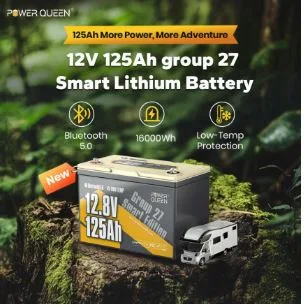Save at the Pump: The Fuel Economy Secret of Injector Cleaners
With fuel prices fluctuating and vehicle efficiency more important than ever, drivers are constantly looking for ways to stretch every gallon. While regular maintenance and smart driving habits play a big role, one often-overlooked solution lies in your fuel system: injector cleaners. These simple additives can help restore lost performance, improve fuel economy, and extend the life of your engine. If you’re looking to save money at the pump, understanding how injector cleaners work—and how to use them effectively—can make a noticeable difference.
What Fuel Injectors Do and Why They Matter
Fuel injectors are responsible for delivering fuel into your engine’s combustion chamber in a precise spray pattern. This ensures optimal combustion, which translates into better power, smoother performance, and improved fuel efficiency. Over time, however, injectors can become clogged with carbon deposits, dirt, and other contaminants—especially if you drive in stop-and-go traffic, use lower-quality fuel, or skip regular maintenance. When injectors are dirty, they can’t deliver fuel as efficiently. This leads to incomplete combustion, wasted fuel, and reduced engine performance. In some cases, it can even trigger warning lights or cause your engine to misfire. That’s where injector cleaners come in.
How Injector Cleaners Improve Fuel Economy
Injector cleaners are fuel additives formulated with detergents and solvents that break down carbon buildup and other deposits inside the fuel system. When added to your gas or diesel tank, they circulate through the system and clean the injectors, intake valves, and combustion chambers.
Here’s how they help improve fuel economy:
- Restored spray pattern: Clean injectors deliver fuel more evenly, improving combustion efficiency.
- Reduced engine strain: A cleaner engine runs more smoothly and requires less fuel to produce the same power.
- Improved throttle response: Cleaner injectors help your engine respond more quickly and efficiently to acceleration.
- Lower emissions: Efficient combustion reduces unburned fuel and harmful exhaust gases.
While results vary depending on the condition of your engine and driving habits, many drivers report noticeable improvements in fuel economy after using a quality injector cleaner.
When and How to Use Injector Cleaners
Using an injector cleaner is simple, but timing and consistency matter. Most products are designed to be added directly to your fuel tank, typically when it’s nearly empty. After adding the cleaner, fill the tank to ensure proper mixing and drive normally to allow the cleaner to circulate.
Here are a few tips for best results:
- Use regularly: For ongoing maintenance, use a cleaner every 3,000 to 5,000 miles or as recommended by the manufacturer.
- Follow instructions: Always use the correct dosage and application method.
- Choose the right product: Make sure the cleaner is compatible with your engine type (gasoline or diesel).
- Combine with good habits: Regular oil changes, clean air filters, and proper tire pressure all contribute to better fuel economy.
If you drive a diesel vehicle, it’s especially important to use a reliable diesel injector cleaner that’s formulated for the higher pressures and unique demands of diesel engines. These cleaners often include lubricants and cetane boosters to enhance performance and protect the fuel system.
Choosing the Right Injector Cleaner
Not all injector cleaners are created equal. Some are designed for light maintenance, while others are more concentrated for deep cleaning. When selecting a product, look for:
- Brand reputation: Choose a cleaner from a trusted manufacturer with proven results.
- Compatibility: Ensure it’s safe for your vehicle’s fuel system and emissions components.
- Additives: Look for cleaners that include corrosion inhibitors, lubricants, or performance enhancers.
- EPA registration: This indicates the product meets certain environmental and performance standards.
Reading reviews and checking your vehicle’s manual can also help you choose the best product for your needs.
Additional Tips to Boost Fuel Efficiency
While injector cleaners can make a big difference, they work best as part of a broader fuel-saving strategy. Here are a few additional ways to improve your vehicle’s efficiency:
- Drive smoothly: Avoid rapid acceleration and hard braking.
- Limit idling: Turn off your engine if you’re stopped for more than a minute.
- Lighten your load: Remove unnecessary cargo and roof racks.
- Keep tires properly inflated: Underinflated tires increase rolling resistance and reduce MPG.
- Use cruise control: Helps maintain a steady speed on highways.
Combining these habits with regular injector cleaning can help you get the most out of every tank.
Conclusion
Injector cleaners are a simple, affordable way to improve your vehicle’s fuel economy and performance. By keeping your fuel system clean and efficient, you can reduce fuel consumption, lower emissions, and extend the life of your engine. Whether you drive a gas-powered sedan or a diesel truck, using a reliable injector cleaner as part of your maintenance routine is a smart move—especially when saving at the pump is more important than ever.






